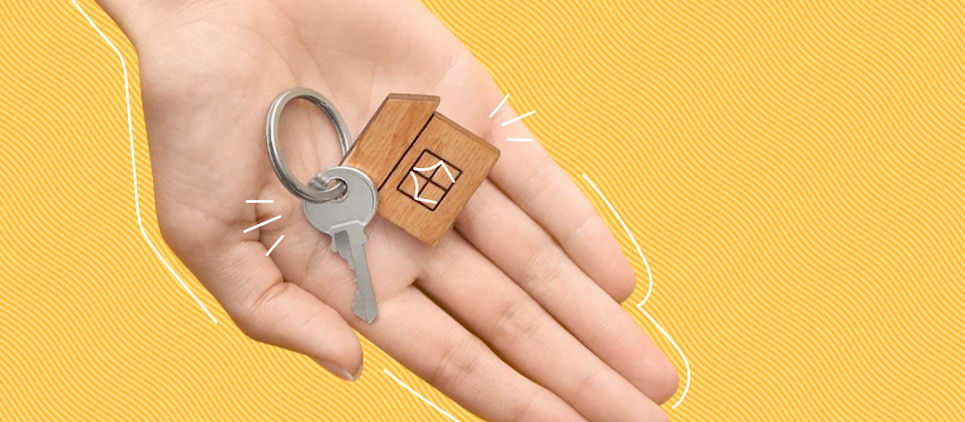What is a security deposit? Complete guide for renters
Signing a lease on an apartment involves more than just signing on the dotted line. Once the rental contract is executed, your landlord will expect you to pay several sums of money: the first month’s rent, as well as a security deposit. But what exactly does this deposit secure, and why are you required to pay it? Savvy renters will know all the ins and outs of this customary transaction. Read on to learn them for yourself.

Table of contents
What is a security deposit?How much should you expect to pay?What do landlords do with your security deposit?How do you get your security deposit back?What is a security deposit?
A security deposit is a fixed sum of money paid by the tenant to the landlord upon signing a lease. Landlords collect a security deposit for both financial protection in case of damages to the unit or unpaid rent, and as a means to encourage the tenant to treat the rental property with care.
Security deposits are meant to be refundable. If all goes well, the tenant will receive the entire deposit back after permanently vacating the rental. If the tenant fails to pay rent or damages the property beyond normal wear and tear, the landlord may use a portion—or the entirety—of the security deposit to cover the unpaid rent or cost of necessary repairs. This is because the tenant is contractually responsible for on-time rent payments and keeping the property in reasonable condition.
Sometimes, a security deposit is specifically set aside to pay the last month’s rent. If this is stated in your lease, then the landlord may only use the deposit for the last month’s rent and not to cover damages. Other times, the landlord will ask for both a refundable security deposit to cover potential damages, as well as a payment reserved for last month’s rent.
How much should you expect to pay?
Usually, a security deposit will be equal to one month’s rent. But security deposit amounts can vary from landlord to landlord and state to state. In California, landlords are legally allowed to charge a renter up to three months’ rent for the security deposit, while landlords in New York are permitted to only ask for up to one months’ rent.
Some landlords use your credit score to determine the amount of the security deposit. People with a lower credit score are riskier tenants for landlords to take on, so they may be charged a higher security deposit than those with good credit. In order to avoid any surprises, make sure to check your FICO credit score before applying for an apartment.

What do landlords do with your security deposit?
What landlords do with your security deposit is also often dictated by state law. In many places, the landlord puts your security deposit in a dedicated bank account that is separate from other accounts. In some cases, the landlord must also return the interest earned on the security deposit to the tenant, which can be done through rent deductions or as a lump sum at the end of the lease. The landlord may not use your security deposit for anything other than the purposes stated in your lease, such as repairs for damages or unpaid rent.
How do you get your security deposit back?
As long as your rental passes the final inspection, you should get your entire security deposit back. Landlords may deduct money from your security deposit if you owe back rent, if the rental property has incurred damages beyond normal wear and tear, if the rental property is excessively dirty and requires special cleaning, and if all the original keys are not returned. In any of these cases, you may receive only a portion of your security deposit back. That portion would be what you originally paid less the amount of the deductions.
The length of time it takes to get your security deposit back also varies by state. Typically, renters will receive their security deposit in the form of a check between 30 and 60 days after moving out of the rental property.
Moving costs can sometimes be prohibitively high—especially if landlords ask for first month’s rent, last month’s rent, and a big deposit. If you’re looking for a new home with an accessible move-in cost, consider coliving with Bungalow. Bungalow offers private rooms in shared homes for less than solo living options in the same neighborhood. Lower rent means a lower move in cost!
Learn more about how Bungalow is making moving easier and more affordable than ever.
Ready to find your next home?
Move-in ready homes and a built-in community so you can feel at home, together — wherever you are.
Suggested articles



